Over the phone, musical elements flow from Lani Hall's melodious voice: engaging rhythms, heightened dynamics, undulating pitch. Her speaking voice is every bit as bell-like and birdsongesque as her miraculous singing voice. But as our conversation progresses, something else becomes apparent. Lani's wealth of professional experience, vulnerability and deep curiosity underscore that voice. As such, she's more a stately sonata than a pop song, more an impassioned suite, than a study. She's earned every stripe and then some. Before our interview, I discover that Lani and I were literally Chicago neighbors, although by a respectable stretch of years. When I pore through the first entry of her timeless, Emotional Memoirs & Short Stories, which she began constructing in Mexico, I immediately react to the hiss of the radiator that warmed her childhood, courtyard apartment, which was steps from my high school and the last stop on the "Ravenswood" Line - this was back in the day when trains had actual monikers and were not simply designated by colour. A mere 10-minute drive away, and in a neighborhood actually called "Ravenswood", poet Carl Sandburg referred to Chicago as "the city of big shoulders". But back in the hood, rough-hewn writer Nelson Algren and reclusive poet Shel Silverstein emerged. Although not a neighborhood that historians would classify as conventionally beautiful, Lani Hall embraced its industrial brick and mortar and worrisome gangways. She somehow found something transformative and magnetic in "the light". As such, she infused her reflective stories with raw humanity and entrusted her working-class characters, with their made-up eyes and boxer shorts, to consecrate her bittersweet beginnings. It's a select group of authors that choose to illuminate Chicago's gnarly neighborhoods, and Lani Hall Alpert (finally, a woman!) has nobly entered the ring. Now, her singing career, that's a separate story. Lani was discovered in Chicago's famous Old Town neighborhood. She sang at Centaur, the now-defunct coffee house, and attracted Brazilian band leader/pianist Sergio Mendes at Mother Blues, a 1960s blue-jean-friendly venue, frequented by the likes of Muddy Waters, Spanky and Our Gang and Buddy Guy. Mendes needed a fresh, evocative voice for his Brasil '66 Project—Brasil '65 had been somewhat under the radar, and he swore up and down that the stunning brunette had the goods. Half-a-year later in 1966, the band was signed by Herb Alpert, trumpeter/president of A & M Records, AKA Lani's future husband and musical cohort. Thus, she would abandon her woollen scarf and mittens for sun block and shades in sunny LA and enjoy the years of 1966 to 1971 as lead singer of Brasil '66 before embarking on a lifelong solo career which would harvest over 20 solo albums, beginning with 1972's 'Sun Down Lady'. Along the way, the songstress would garner additional awards. She received her second Grammy in 2013, but this time, as producer for Steppin' Out, a joint project with husband, Herb, featuring a super-charged hybrid of jazz and pop. Believing strongly in the art of giving back, Lani has become a co-philanthropist with Herb (the pair have generously funded much-needed, inner city arts programs over the span of their respective careers). Often their impetus is touched off by word-of-mouth or even a short newspaper article, such as the one which appeared when an arts school in Harlem was about to belly up for lack of funding. The couple immediately took out their chequebooks and the project is thriving. Although beset for over a decade by a debilitating disease which necessitated a much-needed hiatus, Lani's overall career has yielded countless concert appearances and international acclaim. And her deep-seated affection for the city of her childhood has been contagious. Perhaps to prove that his wife's roots have left an indelible mark, the California-bred Alpert contributed his black and bronze "Spirit Totems" to Chicago's Field Museum in 2018, where the monolithic, Pacific Northwest-inspired icons now enjoy a permanent home. And by snubbing their noses at American stats, Lani and Herb have enjoyed a more than forty-year marriage on the West Coast. True, Lani doesn't get to scrape ice off of her windshield during a polar vortex, but for many of us natives, Lani Hall remains our glowing hometown girl. In her first Pennyblackmusic interview, the multi-faceted Lani Hall graciously keeps us current, whilst humbly illuminating her past. PB: You are a native Chicagoan, Lani, a fact which has inspired much of your literary narrative. We grew up minutes apart from each other: "the last stop on the train". LH: It's still the most beautiful city in the United States. You're in it, but even when I was living in Chicago, I was so attracted to the buildings and the way the city was organized with all the parks and the lake. It's just so gorgeous. PB: In your book, Emotional Memoirs & Short Stories, vibrant epiphanies nest among exhilarating fiction. I was hypnotized by 'Come Rain or Come Shine'. It brought back so many memories for me, starting with your descriptions of "the radiator hiss" and "grey porches in back of the courtyard building" to that of the abolished Terminal Theater, where you say that "75 cents would place me in its magical darkness all day long". Frankly, I've read few works that describe place in such a visceral and evocative way. In 'Come Rain or Come Shine', you are the central character. You reflect back on your relationship with an older woman, Jackie, for whom you used to frequently babysit. As the story progresses, you face peer pressure and begin to judge Jackie, which creates conflict between you. But because Jackie was the older person, I was wondering why she didn't feel the need to take the higher road when that happened. LH: I didn't feel the conflict. She was more like a big sister to me, and I worked for her. I was babysitting for her son so I was there a lot, but then when her son moved to New York, I stayed. Jackie's house was like a safe haven. That's what it was to me. She was my demilitarized zone. She was the only demilitarized zone I had so that was really important to me. PB: You were living a double life at that point. You couldn't openly admit to your parents that there were heroin addicts in Jackie's living room. LH: (Laughs) I don't think they would have liked that. I couldn't have told them that. It was amazing to me that nobody noticed that. We were on the second floor. You'd think that they would notice strangers walking up the stairs. Nobody noticed them ever. PB: Emotional Memoirs & Short Stories appears to have flowed out of you organically. You mentioned in a previous interview that it was an ill friend that encouraged you to share your stories with the outside world. Was that the first time that you decided to do so? Was there a teacher who noticed that you were a budding writer? LH: No, I was trying to be invisible. I was the first one out of the classroom once the bell rang and I cut school a lot. I wasn't really that attached to the teachers or the curriculum so I had to write and I had to sing. Those were the two. PB: In regards to singing, this was also a gift that you were modest about, that you kept to yourself for a long time. Some would say that you crossed the introvert/extrovert line when you became a performer? At what point, did these two art forms intersect? LH: I feel like an introvert. I do have the skills to talk to people and look them in the eye when talking to them (laughs). But I'm not a real social person. Once more than one person is in front of me, I get confused about where I should be putting my attention, which one am I talking to here? But like I said, I feel like I had to write. I had to sing. It wasn't something that I really had any choice about. I just had to do it in order to free myself of my own inner thoughts and to release them and not just let them pile up inside of me and that's really why I wrote and I sang, but I had a hard time socially. School was a nightmare for me. School was really difficult for me with so many people all the time, with the noise level. It wasn't easy for me, and plus, I had a tough childhood. I had an emotionally hard childhood. Like I said, my neighbour was my demilitarized zone, so at least I had someplace to go to just defuse. PB: You have said that "stories are very much like jazz" and the CD accompanying Emotional Memoirs & Short Stories is infused with some sublime jazz passages. How did this come about? LH: A friend of ours was sick and in the hospital. She was going crazy and said, 'I don't know what to do with myself'. I said, 'I'm going to give you a story about when I was sick,' which is the last story in the book, just to give her something to do. She read it and said, 'Do you have any more stories?' I said, 'Probably in my drawer somewhere'. I gave her a bunch of stories of mine and she said, 'I think you have a book'. When I looked at the stories, I said I needed something to tie them together. That's what made the "emotional memoir" part. Before each story, there is a truth going through the book and that made me feel like I could tie the stories all together, even the fiction and the nonfiction, it didn't matter. That's what happened. I had a bunch of tapes of music that I liked. I see music so it's visual, to me, so when I heard these pieces that I had, I could tell which story was operating. I edited them together. I really wanted to make it like it was a film and this is a soundtrack and it creates the image that you're reading about. That was my intention. PB: You began your career with Sergio Mendes and Brasil '66, where you sang in Spanish and Portuguese. Further down the line, you worked with producer Albert Hammond on another internationally-flavoured project. LH: I was singing in Spanish with Albert. Before that, I was with the group Brasil '66, so I had to learn how to sing and maneuver my way around Portuguese and for some reason, it wasn't hard for me. I wanted to sound authentic and so I just threw my attention on it, talked to the other Brazilians in the group about how to pronounce these words and I would write them phonetically in great detail so that I could get it just the way it sounded. I loved it, so I was a great subject for that music. I was a lead singer for that group for five years and then I left the group and became a solo artist. I was sprinkling things in Portuguese around my solo albums, too, because I didn't want to let that go but then I did the solo for the Bond movie 'Never Say Never Again', and there was a lagging period there, where we were waiting for the single to come out and it wasn't going to be for a few months, so Jose Quintana, a Mexican producer, came up to me and said, 'While you're waiting, why don't we do an album in Spanish?' So I ended up doing three albums in Spanish before I was introduced to Albert, who wrote most of the songs on 'Es Facil Amar'. This was his baby and so I started working with him. It became a very successful record. It was up for a Grammy and I won the Grammy for it (Best Latin Pop Performance, 28th Grammy Awards, 1986). PB: Your rich repertoire with Brasil '66 opened a window to listeners who had never been exposed to Brazilian music previously, and the fact that the songs were sung in Portuguese was not an obstacle to the audience's enjoyment. That didn't matter. I guess the performance had a great deal to do with that? LH: I don't think so (laughs). My husband would look at me and say, 'Forget it. Not true'. But no, I don't think so at all. It's the melodies and the sound of the language and the emotion that's behind all of that. A lot of times, people will ask me, 'What are you saying? What does this song say?' I have no idea. It doesn't matter to me what it says. It says it all emotionally to me and the sound of Portuguese is so rich and rhythmic and melodic. It's just so beautiful to my ear. I think it's the most beautiful language to sing in. It just sings, so I loved singing in Portuguese. I still do in the show that my husband and I do. We've been touring now for, I think, twelve years. We do about fifty concerts a year and I added Brazilian music to it. PB: With Brasil '66, you also sang ballads in English, such as a cover of 'A Fool on the Hill'. Did you ever hear a reaction from Lennon or McCartney? LH: I'm sure Sergio did. It wasn't me. I had nothing to do with the arrangements of these songs. Sergio was the leader of this group and he was the visionary. He was the one who worked with arrangers like Dave Grusin and others who worked together to make these arrangements. PB: How would you describe the audiences you get in terms of generations? LH: In the beginning, we got an older audience and that was fine with us. We weren't anticipating anything, but as we go back to some of the venues that we've played, it's a younger audience. They're mixed in. I'm happy about it because I think we're playing music that a lot of people don't hear anymore and it comes with a little bit of a twist. The arrangements, even though they are known tunes, may sound different. There is a lot of jazz in our set and a lot of improvisation so each time our band performs, it's different for us, too, so it keeps us fresh. PB: How long do you typically rehearse for an upcoming gig? LH: We don't have to rehearse. We have the show unless we're adding songs, like, for example, we just did Christmas shows, so starting in October and November, we started adding Christmas songs for the season. We had to rehearse then but we love the songs that we do and we start adding songs every six months to keep it interesting and to keep it fresh, but we don't need to rehearse anymore. We're really locked in to each other. PB: How long did it take to get to that point? LH: I would say, for me, it probably took a couple of years to really feel like they had my back and I had their back. I was comfortable right off the bat but to really lock in and to have that feeling that you're having this musical conversation, that took a little longer. PB: In your televised interviews, it's very apparent that you listen attentively. Often when experienced musicians mentor emerging musicians, they express the importance of listening to one another, yet this is a skill that is often overlooked. LH: I come from more of a psychological place. Even with the songs we do, like I said before, I can visually see music and so when I'm singing a lyric, I'm seeing the story pass by me and I can tell, is it sad? Is it happy? Indifferent? What's going on here? So I can relate more to the psychology of it than anything else, I think. And that's the way it is, too, with the characters of the book. I kind of picked apart their psyche, to find out, who are you and what do you want? PB: 'Putting on the Ritz' is a new video you and Herb have produced. LH: It's an exciting arrangement. It's exciting the way everybody is playing it; the tempo, and it's exciting to sing and do with the band. It's the last song we usually do in the set and people fly off their seats when it's finished, so it's a very good addition to our show. PB: If you could go back in time, what would you do? LH: With technology, the world is changing so rapidly. If I had to pick, I would go back maybe 20 or 25 years, when there wasn't technology in your face, and feel the relief of that. It was supposed to give you more time, but for some reason, it isn't. It's taking up a lot of time and it's getting in the way of people communicating with each other. I see it as something to be careful of. PB: When you reflect back on the onset of your career, performing in Chicago's Old Town area, do you retain fond memories of those days? LH: I have fond memories of the music that was playing then. I'm not completely into the music of today, although I do like certain artists very much, but jazz is almost a dead art form. We're trying to keep it in the picture but it's hard. Like Herb would say, when people ask him about his career and everything, he always says, if it was like that now, he could never have started A&M Records. It's just a different world, it wouldn't have gone anywhere. Then is then and now is now, but that's life. PB: As for the audiences of this generation, do you feel they're simply not getting exposed enough to different genres, and that's why you say "jazz is almost a dead art form"? LH: Brazilian music is steeped in jazz. It took a lot from American jazz and also African music; it's such a hybrid of different styles and that's what makes it so beautiful. It's mixed with classical and African so you get this holy, primitive feeling from these gorgeous songs. It's very special and it's sad that people, like you said, if you hadn't heard Brasil '66 - maybe Stan Getz in 1962, he came out with 'The Girl from Ipanema' and those classic ones. In fact, when I first heard Sergio at Mother Blues in Old Town in 1965, my first reaction was, 'Oh, that's that music!' I hadn't heard it for a couple of years because it came and went. But, boy, that was really exciting and that is what made me follow the music; that is what I had decided to do, follow the music. PB: Who would you cite as your most important influences? LH: June Christie, Anita O'Day, Nina Simone, Bill Henderson, Hendricks, Lambert and Ross and then Streisand came out. She wasn't really a jazz singer, but her arrangements tended to swing that way a little bit. I loved Judy Garland, actually, I loved her. Her emotions were right on her sleeve and that was appealing to me, too. PB: But ultimately you developed your own sound. LH: I think it's a conglomeration of the artists that I sang with in my room. They were like singing teachers to me because I didn't study formally, but I was listening to Frank Sinatra. Talk about a story teller and a poet, he was poetic and it was gorgeous. I had two albums of his that I just pulled apart and I sang with in my room and I learned them. PB: Thank you.
Picture Gallery:-
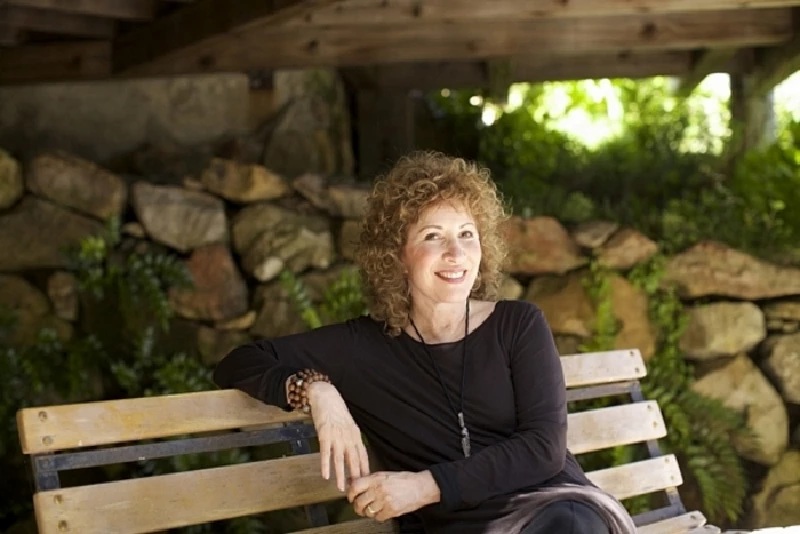
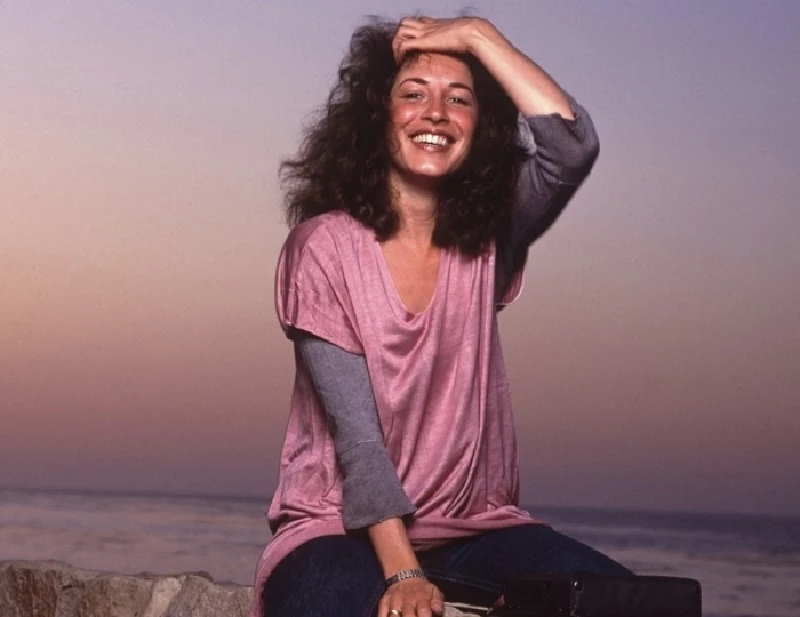
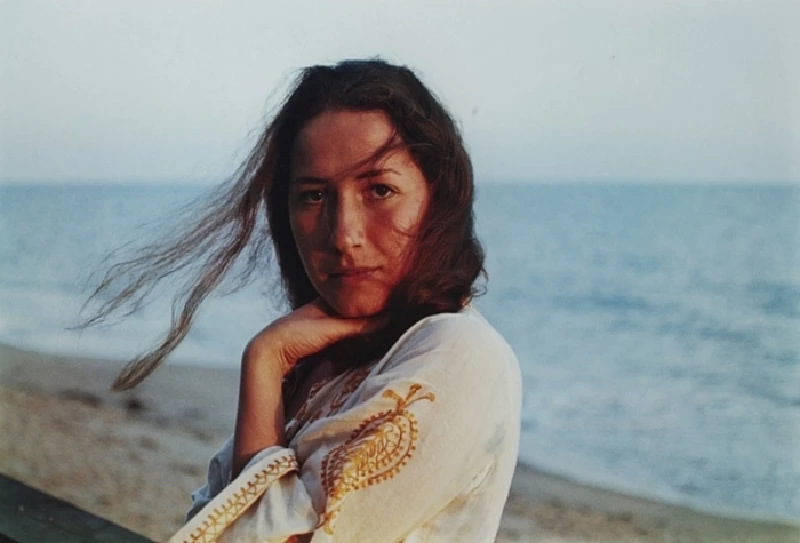
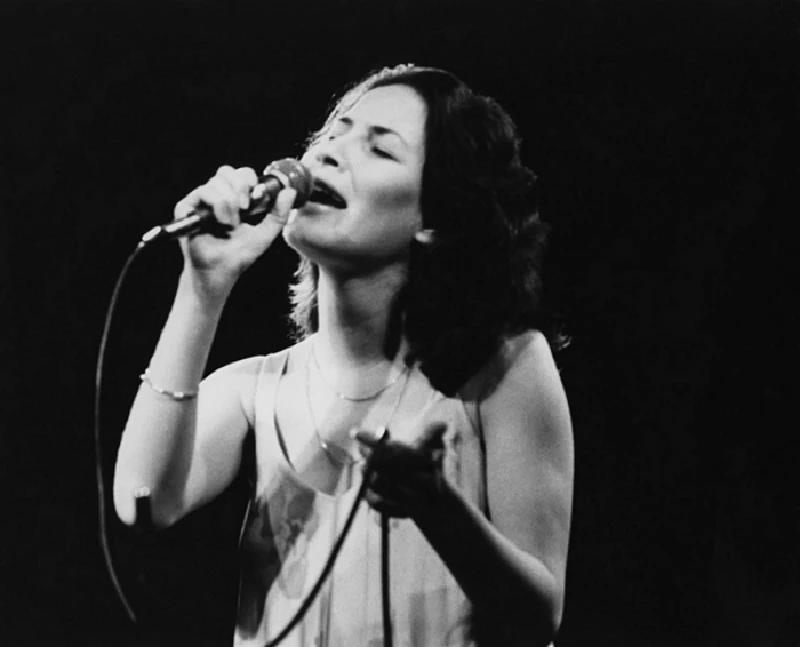
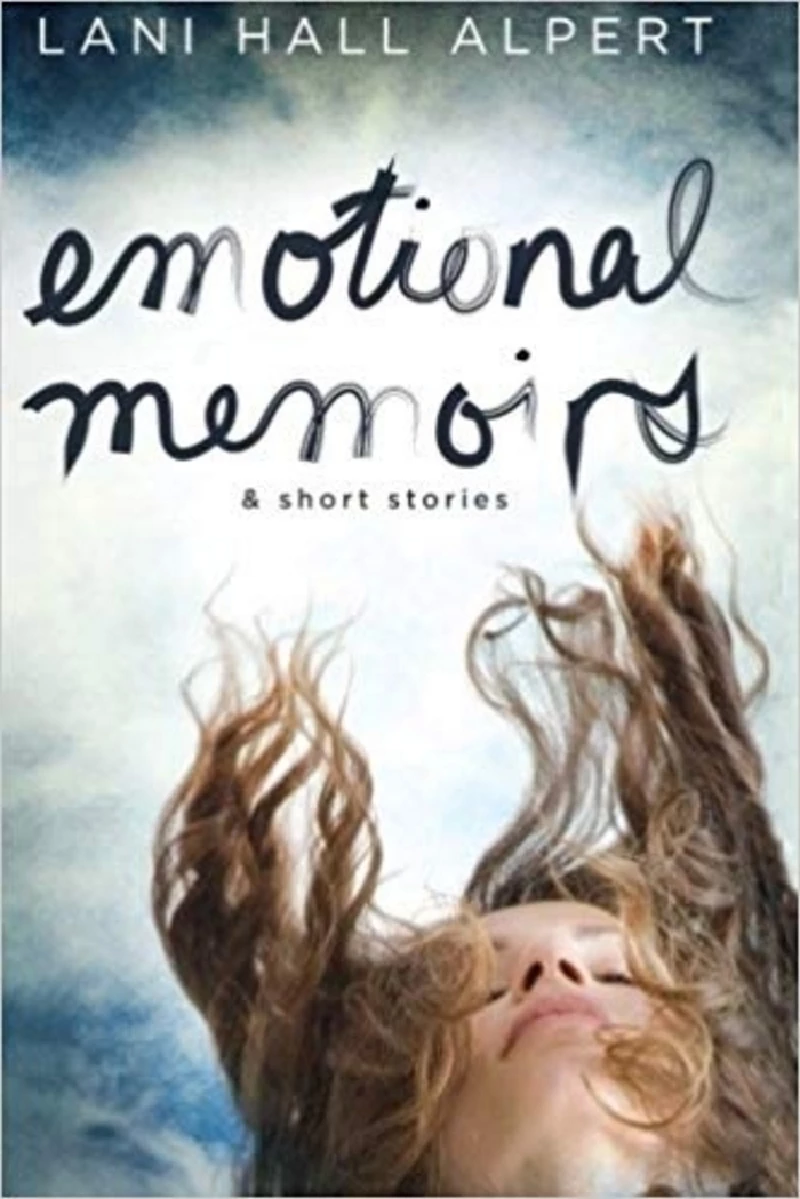
Visitor Comments:- |
| 2439 Posted By: Debra Z., Los Angeles on 04 Jun 2022 |
|
Appreciate this interview. I have been a fan since the 60s. but to recently learn about illness, I can relate as myself and family have been ill like Loni. I have positive EBV virus again with Fibro. I love the back stories of my favorite female performers. My parents had that first 66 record (and many of the Herb records which were used for the soundtrack of my story growing up in So Cal with my famous friends Dogtown & Z Boys film). and although I loved the Beatles and Motown, I have never stopped listening to that music and singing along with Loni. Would love to have a conversation with Loni.
|
intro
Singer/producer Lani Hall discusses her evocative book 'Emotional Memoirs and Short Stories', her international singing career and what keeps her current
most viewed articles
current edition
Peter Doherty - Blackheath Halls, Blackheath and Palace Halls, Watford, 18/3/2025 and 21/3/2025Armory Show - Interview with Richard Jobson
Liz Mitchell - Interview
Deb Googe and Cara Tivey - Interview
Lauren Mayberry - Photoscapes
Max Bianco and the BlueHearts - Troubadour, London, 29/3/2025
Garfunkel and Garfunkel Jr. - Interview
Maarten Schiethart - Vinyl Stories
Clive Langer - Interview
Sukie Smith - Interview
previous editions
Heavenly - P.U.N.K. Girl EPBoomtown Rats - Ten Songs That Made Me Love....
Trudie Myerscough-Harris - Interview
Doris Brendel - Interview
Beautiful South - Ten Songs That Made Me Love...
Kay Russell - Interview with Kay Russell
Dwina Gibb - Interview
Pulp - Ten Songs That Made Me Love...
Barrie Barlow - Interview
Sound - Interview with Bi Marshall Part 1
most viewed reviews
current edition
Davey Woodward - Mumbo in the JumboNigel Stonier - Wolf Notes
Wings - Venus and Mars
Kate Daisy Grant and Nick Pynn - Songs For The Trees
Only Child - Holy Ghosts
Neil Campbell - The Turnaround
Philip Jeays - Victoria
Darkness - Dreams On Toast
Suzanne Vega - Flying With Angels
Charles Ellsworth - Cosmic Cannon Fodder
Pennyblackmusic Regular Contributors
Adrian Janes
Amanda J. Window
Andrew Twambley
Anthony Dhanendran
Benjamin Howarth
Cila Warncke
Daniel Cressey
Darren Aston
Dastardly
Dave Goodwin
Denzil Watson
Dominic B. Simpson
Eoghan Lyng
Fiona Hutchings
Harry Sherriff
Helen Tipping
Jamie Rowland
John Clarkson
Julie Cruickshank
Kimberly Bright
Lisa Torem
Maarten Schiethart